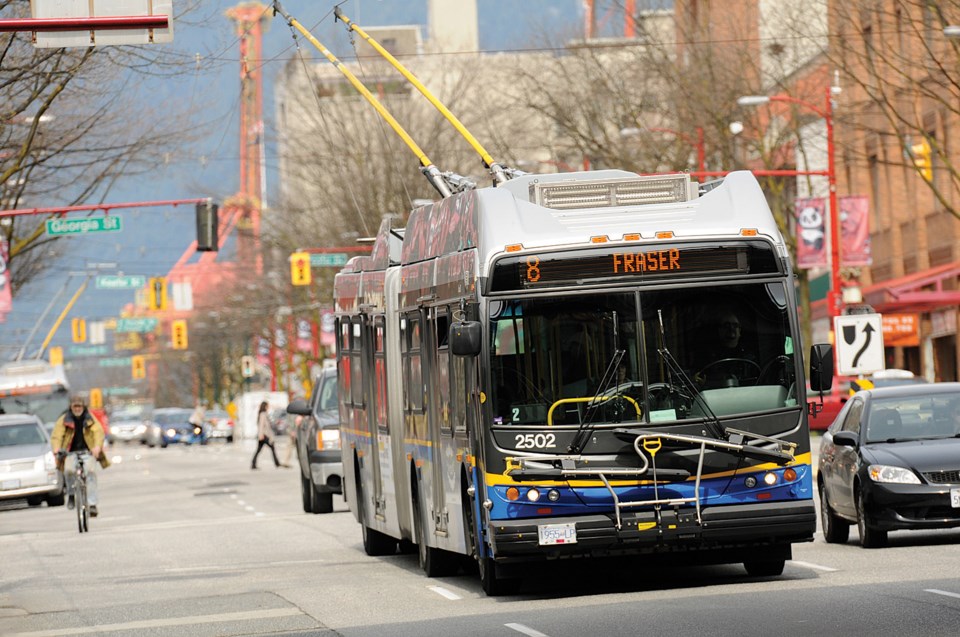TransLink announced a new pilot project Thursday morning that will see the transit company add four new electric buses to its fleet in 2019.
The project is a partnership between TransLink, Natural Resources Canada, Metro Vancouver and BC Hydro.
The two-and-a-half-year integration trial is part of a nation-wide initiative led by the Canadian Urban Transit Research and Innovation Consortium that will allow TransLink to explore another way to reduce carbon emissions.
“Mass transit has always scored high as a sustainable way to move large numbers of people, but many transit vehicles still use carbon-based fuels,” TransLink CEO Kevin Desmond said in a press release. “Today, almost half our bus fleet runs on cleaner technology including our electric trolley, hybrid diesel and natural gas buses. With this fast-charge, battery-electric trial, TransLink is getting the on-the-ground experience we need to develop our Low Carbon Fleet Strategy and transition towards a zero-emission fleet.”
The buses, manufactured by New Flyer and Nova Bus, will be tested on route 100, which travels along Marine Drive through Vancouver, Burnaby and New Westminster. High-powered charging stations will be built at each end of the route — one at the Marpole bus loop and another at the 22nd Avenue SkyTrain station. The stations will be able to quickly charge the batteries in four to seven minutes while the buses are in layover.
During the trial, TransLink will collect data on bus and charging cross-compatibility, as well as bus performance, maintenance and overall customer experience.
The feedback will help in the development of the company’s low carbon strategy, which is currently under way, working toward a transition to a zero-emission bus fleet.
“The electric bus trial is a significant step for Metro Vancouver, especially as gas and diesel vehicles are the top contributors to greenhouse gas emissions in our region,” said Coquitlam Mayor Greg Moore, who is also Metro Vancouver chair. “These are the viable alternatives we are looking at as we develop our Climate 2050 Strategy, which aims to reduce regional greenhouse gas emissions and prepare for the impacts of climate change, and our ongoing initiatives to reduce harmful emissions of diesel particulate matter.”
Almost half of TransLink’s current fleet runs on cleaner technology, including — 262 electric trolley buses, 145 that run on compressed natural gas and 255 hybrid diesel buses.



